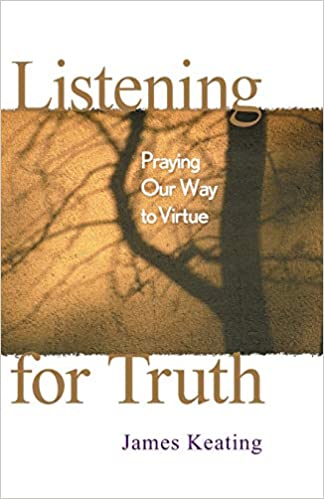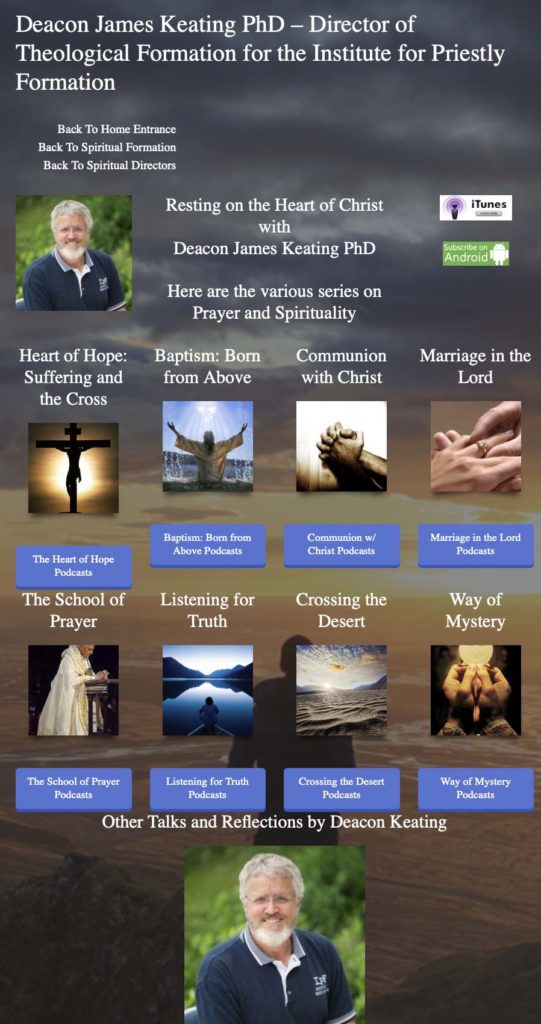Podcast: Play in new window | Download (Duration: 30:43 — 21.2MB) | Embed
Subscribe: Apple Podcasts | Spotify | Amazon Music | Android | Pandora | iHeartRadio | JioSaavn | Podchaser | Gaana | Podcast Index | Email | TuneIn | Deezer | Anghami | RSS | More

Episode 9-Listening For Truth– The supernatural virtues provide for us the gifts to walk and respond to moral truths. We need to practice the virtues to receive the wisdom of God and to be more deliberate in the love of the good. The theological, contemplative language is foreign to many, unlike the political language in which the culture swims, and that can affect how we respond to moral questions. What can we do to listen and respond to Truth?
Deacon James Keating, Ph.D., is a Professor of Spiritual Theology at Kenrick Glennon Seminary in St. Louis, MO. He previously served as the Director of Theological Formation at the Institute for Priestly Formation, located at Creighton University in Omaha, NE.
Listening for Truth leads men and women in a search for a fuller experience of God that begins in prayer, grows in the rediscovery of our spiritual being, and grounds itself in the truth of Jesus Christ. A presentation of the Christian life as an engagement of the whole person — body, mind, and soul — in the challenge of daily living.




